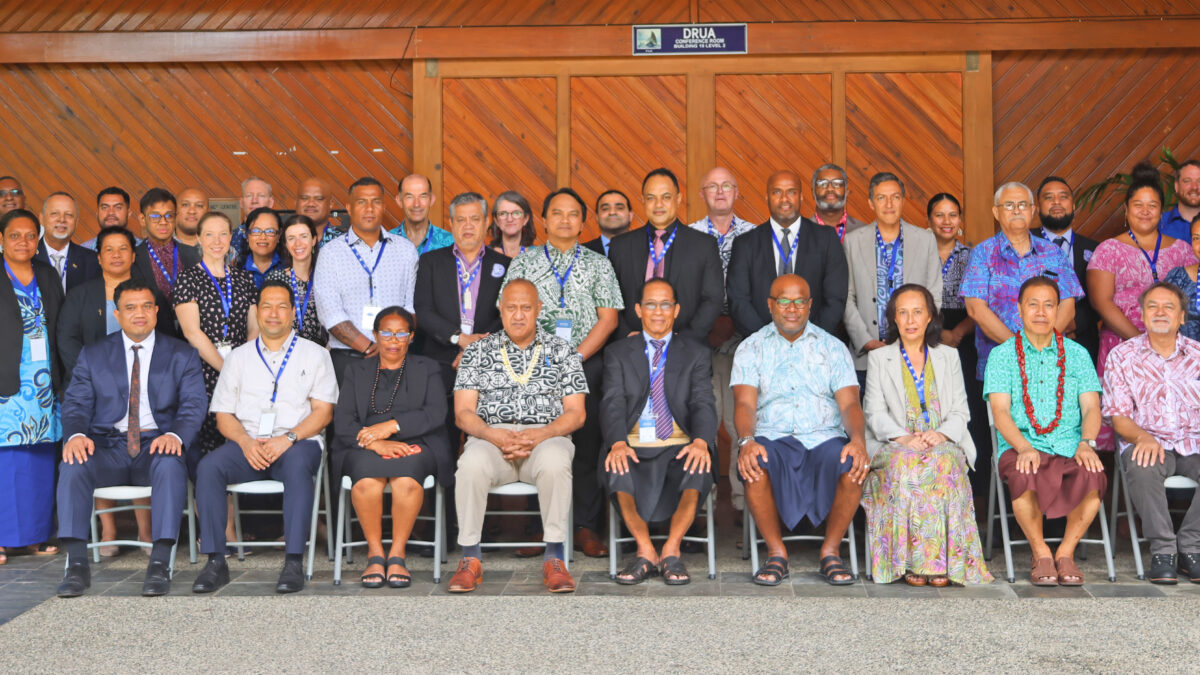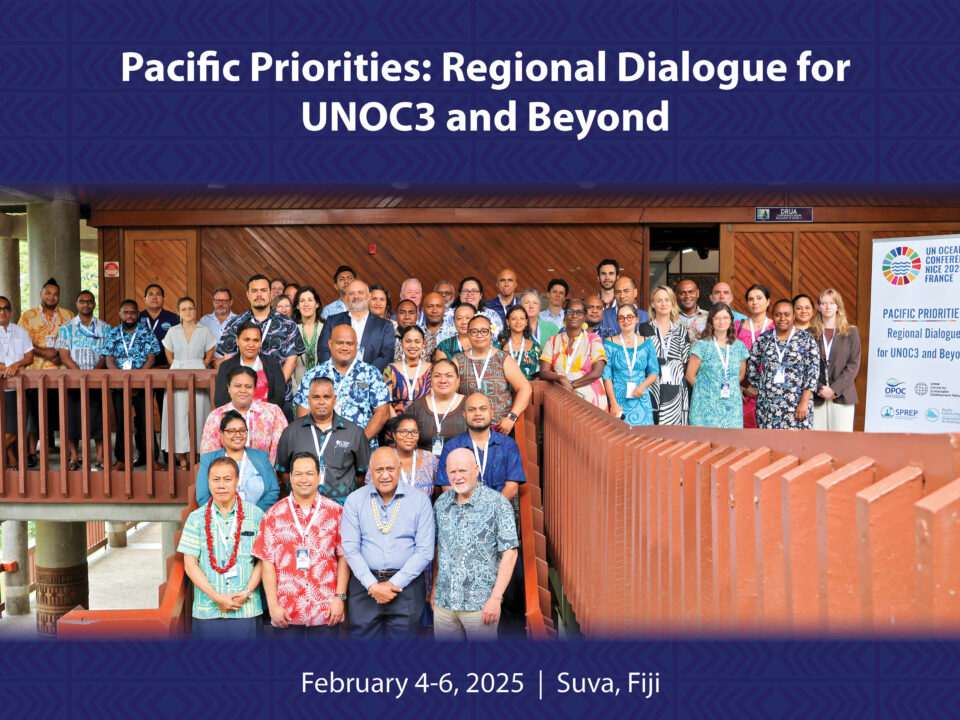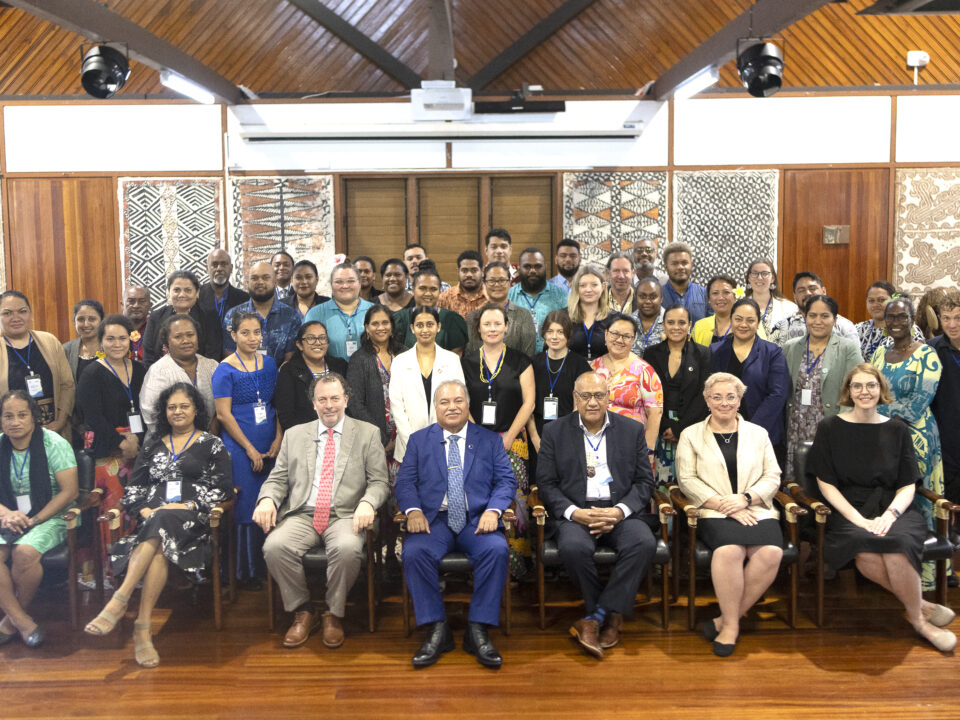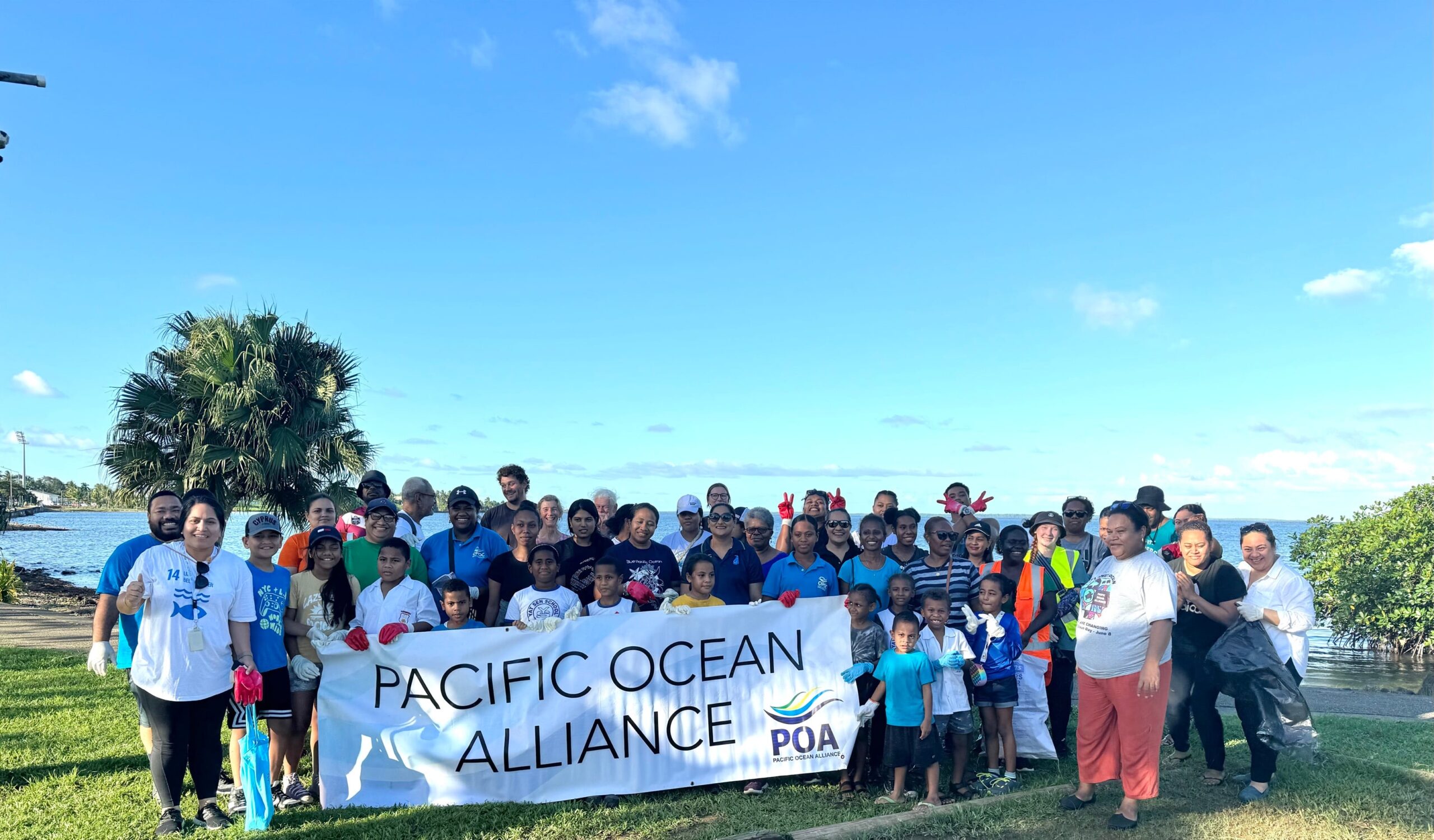
PIFS Headquarters in Suva on Tuesday 18th February 2025
Excellencies,
Senior Officials,
Colleagues from CROP Agencies,
Ladies and Gentlemen.
Alii, Bula Vinaka, Kia Orana, Good morning tumas, Talofa and Iakwe to all of you
First and foremost, I would like to extend a warm welcome to all of you to your Secretariat. On behalf of the OPOC/PIFS and the CROP teams, can I express my deepest appreciation for your willingness to set aside time from your incredibly busy schedules to join us at this historic moment.
As I look around the room, I see many familiar names and faces, many of whom I recognize from our weekly DSM Informal Working Group meetings that took place between September of last year and January of this year. Your extraordinary commitment to fulfilling the directives set by our Leaders has been truly inspiring. The OPOC, along with the expert teams from PIFS, SPC, SPREP, and USP, are deeply grateful for the invaluable guidance that has shaped the preparations for this event.
Over the past decade, interest in deep-sea minerals, and exploration studies have increased exponentially within national jurisdiction and in the seabed and subsoil beyond national jurisdictions (‘the Area’). Aside from the Solwara project in Papua New Guinea, I am not aware of any exploitation contracts that have been approved within EEZ or in the ‘Area.’ But globally there are emerging many sides to DSM discourse with views that are often diametrically opposed, with respect to the science, the environment, socio-cultural impacts the economics of DSM.
There was a general acknowledgment of the importance of a precautionary approach and science-based decision-making. A balanced scenario would involve having the necessary science available to ensure that exploitation can only occur if it can be done without harming the environment. Others argue that it will be challenging for the International Seabed Authority (ISA) to develop a comprehensive and meaningful legal framework for activities in the Area due to a lack of data on deep-sea ecosystems. The current state of negotiations on Exploitation Regulations within the ISA may be a reflection of these challenges.
On the other hand, there are those who view the deep sea as a new frontier in the global pursuit in a sustainably way of energy security, and climate change solution with rare earth minerals seen as crucial to combating climate change and supporting the desired energy transition—which by the way are key goals in the Pacific’s multilateral advocacy drive at the global level. At the regional level we all acknowledge that there is no regionally agreed approach to DSM and DSM related activities. As such, as it is their right as sovereign states to do so, some Members have taken the approach that they deem best in their national interests.
But this, I do not mean to suggest at all that any Member of the Forum family is indifferent to our Forum family commitment to safeguarding the Ocean at all but I think we are all for that, but I think there are differing views on the key aspects of DSM such as the science, impact on the environment and the economic viability of such ventures for instance. I am confident that for us here in the room today, the bottom line is that Our Ocean continues to be healthy resilient and thriving at the end of the day for the benefit of our future generations.
And so that is really the essence of the Talanoa this week, an opportunity for us a region to step through some of these difficult issues at the highest political levels share ideas, exchange views and by the same token identify the low hanging fruits to move us forward as a region. If it has not been made clear already, this process of the Talanoa is not a ‘negotiations.’ Leaders did not call for a negotiations on a regional position, rather, Leaders simply wanted the opportunity to Talanoa in an open and constructive way.
As a region, we have always touted the centrality of the Ocean in our lives. For many of us, the Pacific Ocean serves as the only and exclusive source of life and vitality not only in the sense of economic development and national building aspirations, but the simple subsistence of peoples in the Pacific are tied to the health our Ocean. In the Vavau’u Declaration of 2010 and the Palau Declaration of 2014 Leaders committed to playing a central role in the stewardship of one of the greatest natural endowments in the world – the Pacific Ocean, which they described as the lifeblood of our economies and societies. In their Pohnpei Statement, Leaders underscored the inseparable link between our ocean and as such, our Leadership matters. In the 2050 Strategy endorsed by Leaders, our north star, again these principles are again deeply entrenched. In calling for this Talanoa under paragraph 68 of their 2023 Communique, leaders re-affirmed commitment to the health and resilience of the Blue Pacific Continent. So there is no mystery about it we have this covered.
Over the years we as a region have leveraged the power of this ‘collective’ underpinned by these very principles for instance in the case of fisheries management. Now we have the healthiest fisheries across the globe. As a collective we have leveraged the power of this solidarity on our Ocean work at the multilateral level, helping influence and shape outcomes of important multilateral processes, inclusive of the 1982 UNCLOS, the Fish Stocks Agreement, WCPFC, SDG14, and recently the BBNJ Agreement, where the Pacific remained in defiant solidarity to get into the Agreement principles central to our interests such as the special interests.
My point here is that as a region, even in this DSM conversation we are not starting from scratch. To the contrary we have taken substantive strides in developing and entrenching key principles on ocean governance. We have over time developed a robust regional ocean policy and legal framework platform, that we as region we have leveraged in the fisheries sector, in the multilateral level on the ocean governance, and in the climate space.
So, we have a head start, why couldn’t we on the coat tails of this robust policy platform, work through these difficult DSM conversations.? So therein lies our task. We have got the foundation right, and our task in this DSM conversation is to use these principles that we hold dear, as a stepping-stones in our efforts to converse and Talanoa and to find some convergence at the regional level.
Starting this morning we will hear from different facilitators and presenters who will take this meeting through a number of presentations on the nine sessions we have scheduled for these two days. We will hear about the International Legal framework that governs DSM activities in the Area and in the EEZ and Continental Shelf, learn more about deep sea minerals, the state of the science, potential impacts on the environment and the economics of DSM and how we tie this all to our roadmap under the 2050 Strategy. OPOC has worked closely with our CROP experts to support these events. I encourage us to all use this opportunity to ask questions, share knowledge and use the Pacific spirit of the Talanoa to gain more insights into this DSM issue.
As Chair has indicated the intention is that a summary of these technical sessions will be presented at the Leaders Talanoa on Friday, and so at the end of each day, a drafting group of Members supported by OPOC and CROP will convene to look at a summary of the day’s sessions and to agree on a final consolidated version to be presented to the high-level Talanoa.
It is also expected that following the two days sessions that Members will also consider the program/agenda for the high-level Talanoa. Your support to this high-level Talanoa is indispensable and as such the OPOC and CROP partners once again look to you for your able guidance as we begin to shape the planning of the Talanoa on Friday.
This is no doubt a historic moment Excellencies and Senior Officials and Leaders should be given the credit for their foresight.
Thank you Again for taking the time to attend this event.
Komol tata, Vinaka Vakalevu, Sulang, and
God bless you all.



